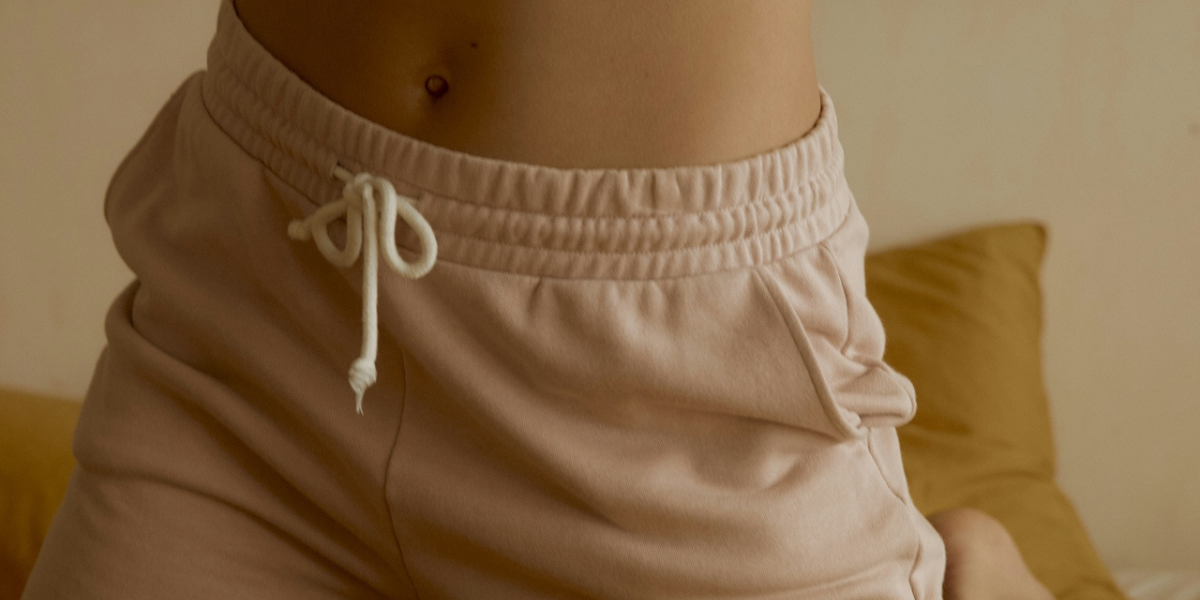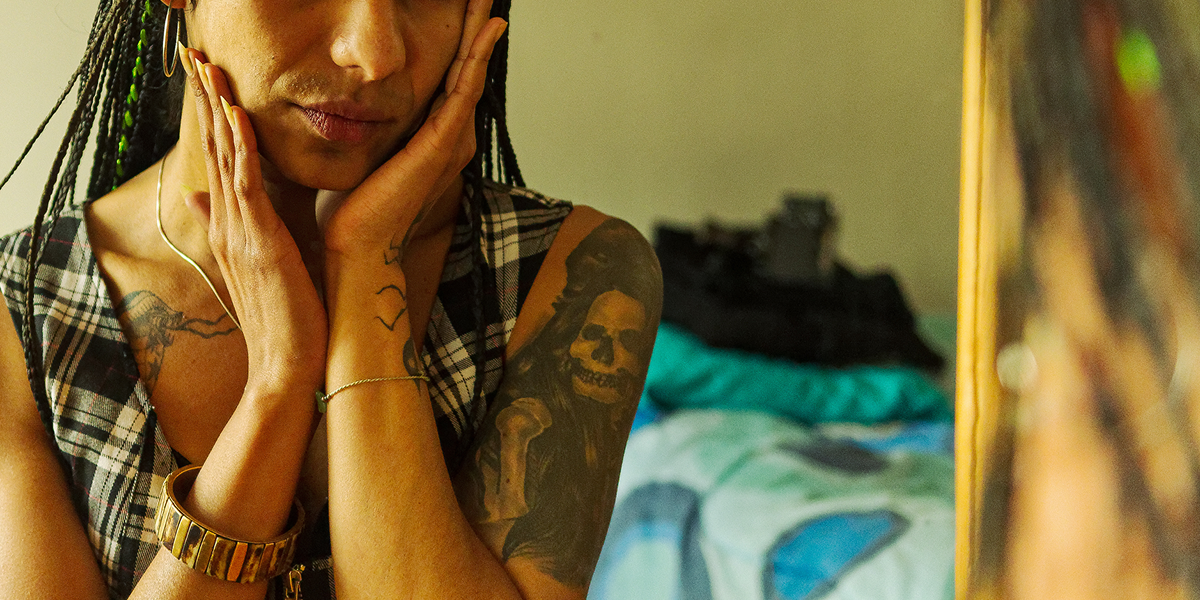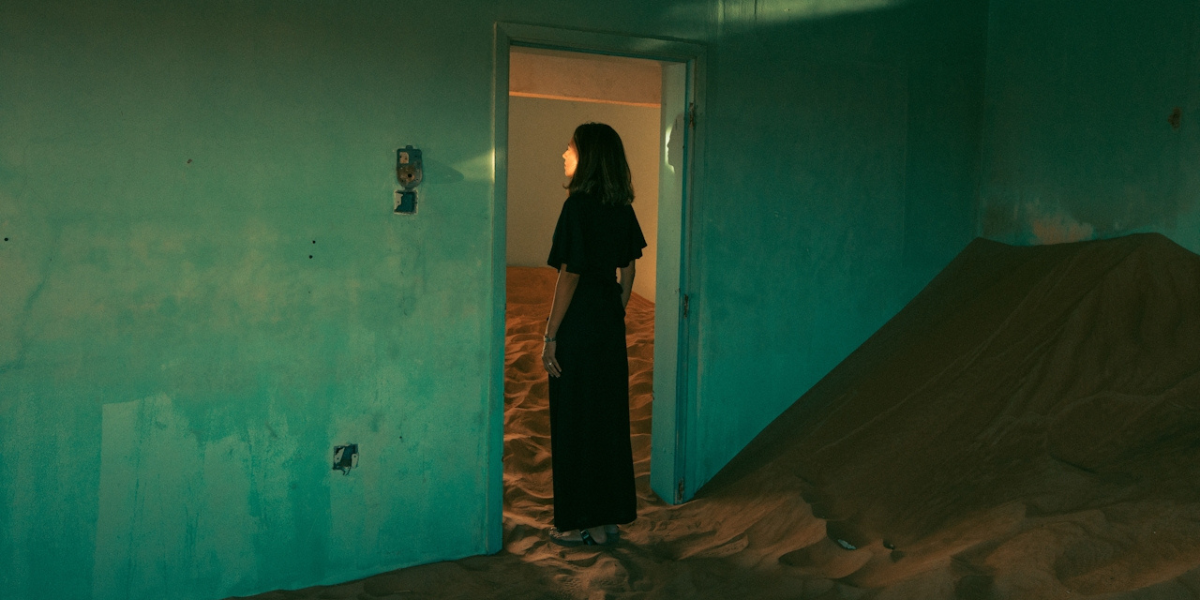As you may have heard, LGBTQ people have higher rates of mental health issues than straight people — and so it’s no surprise we’ve written quite a bit on the topic! Which brings us to our second volume of Autostraddle Classics (the first was Lesbian Dating 101), an easy-to-access guide to all the things we’ve said. This is by no means exhaustive — we’ve written a lot on this topic, so not everything is here (or even contained in the “mental health”) tag. But it’s a start.
Special note: Many of these pieces have inspired readers to reach out directly to the writers of the piece in search of support. E-mails of appreciation are great, but if you do choose to do this, please recognize that it can be emotionally overwhelming and mentally exhausting for the writer to feel obligated in any way to respond. But we love you a lot!
Depression, Anxiety, Bipolar Disorder, Schizophrenia and Other Mental Health Conditions
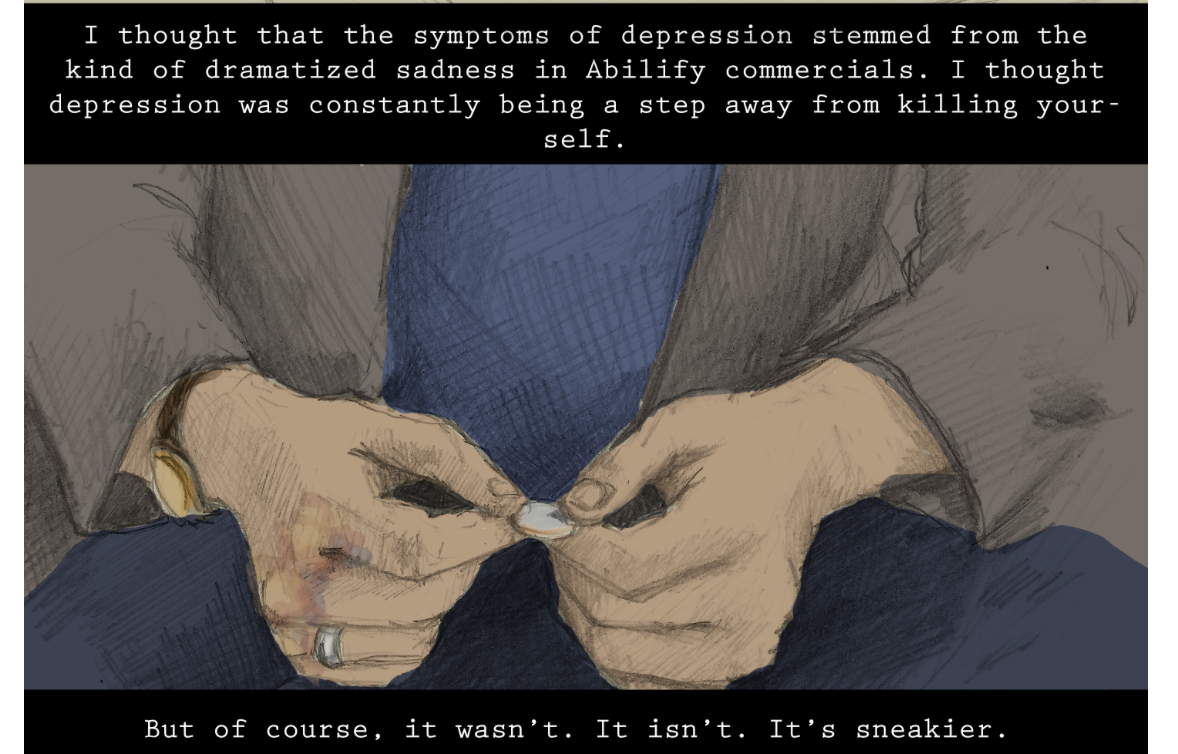
26 Things Depression Feels Like According To My Diary, by Riese
22. Being stalked by a lump of coal
23. Like being awake is sleeping and being asleep is living
24. Like being awake is lying
Bipolar Disorder, Trans Dykes, and Celestial Catastrophe, by June Amelia Rose
One patient in the study “Observation of Trends in Manic-Depressive Psychosis” by O. Spurgeon English recounted that living with bipolar disorder “is like opening all my pores on a cold day and subjecting myself to catastrophe.”
I too have felt like a catastrophe of a person, a catastrophe of a star, a catastrophe of emotions.
Anxious Little Butch, by Kate Severance
Sometimes I will see another body and be overcome with an anxiety that I am not as “good” at butchness as they are, not as sexy or confident, not as tough or lovable. This often spirals into triggered dysphoria, and I’ll find myself wrapping my body up for days until I don’t realize that I am attached to it anymore.
Trans and Schizophrenic: When Diagnosis Impacts Transition, by Sam Ashkenas
When I was actively psychotic I never mentioned my desire to transition. It’s only when I’m healthy that I pursue hormone replacement therapy and laser hair removal. When I was at my worst, I couldn’t even think about my gender identity. I was too preoccupied by my fears. I was afraid harmless things, like street signs or trees, were trying to kill me. I became concerned only for my survival. I couldn’t even think about my gender identity.
Dust to Dark: The Colors of My Craziness, by RN
“I’ve been listed on the news as a missing person and when I find out that there’s an entire police force, thirty men strong, combing the city in search of me, I am enraged — in my mind they’re careless and cruel, misguided and misinformed; they are nameless, faceless antagonists in my struggle to rejoin the night.”
Screaming/Not Screaming, by Laneia Jones (A+)
“What if you opened the door and nothing was there? Why is there ever anything there to begin with? What if you always thought a floor was there but you were really just walking on powdered insect shells? Why are exoskeletons so shiny? Is skin just a soft, matte exoskeleton? Does the person-like thing lying next to you have real skin or just this soft matte exoskeleton?”
Everything Hurts All The Time, by Riese
“I’ve had major bouts of depression throughout my life for various reasons, but that first year at Michigan was the saddest and loneliest I’d ever been for no reason at all. At 19, everything seems potentially permanent and therefore terrifying — you’re between childhood and adulthood and clues shoot from all directions about what that adulthood might look like. Mine was foggy as day: I’d get straight As, be single forever, and my body would never work again.”
Some Things Are Impossible: How A Rural Queer Lives With Depression, by Lila
“Through farming I learned to mold my own badass identity from out of the grip of pubescent shame. I learned to fall in love with myself through my own capability. To fall asleep and mentally recall the fence you repaired, the broccoli you transplanted, the pigs you tended, all in a day, is to feel grounded in your sense of self. So drunk was I on my own ability, that when depression descended — when getting out of bed required half an hour of mental brokering and the walk up to the field felt downright Herculean — I was entirely lost.”
To Be Queer, Black, and “Sick”, by Helen McDonald
“The first woman I ever loved told me that when you’re queer and Black, illness is a shadow that always follows you, but that no one ever acknowledges. I walked away because I didn’t know how to see it?”
Schecter 3:16 (Or How Jenny Schecter Saved My Life), by Heather Hogan
“Jenny Schecter was a mess. There’s no denying it. The writing for her character was so outlandishly inconsistent that you never knew which incarnation you were going to get from one season to the next. She was a duplicitous megalomaniac whose self-indulgent, self-destructive antics knew no boundary. But you know what? So is Don Draper. So was Walter White. So was Dexter and Jack Bauer and House and Tony Soprano. But they’re dudes, so that makes them interesting. Jenny Schecter is a lady, so her deal makes her a cunt.”
I Don’t Have An Expiration Date and Neither Do You: How I Learned to Have the Best Day Ever, by Grace Kim
“I realized I had just had the best day of my life and none of the things I had done to make it the best day were out of the ordinary. All that changed was the way I approached the day in my mind. I wanted it to be the best day and so I approached it as if it were going to be. It led me to take risks, leave my comfort zone and do the things I’d normally never do out of fear.”
The Big Reveal, by Jenna Leigh Evans
“In fact, the strain of hiding my illness would likely have caused me to break down with even more frequency. How would she have coped with those dysphoric, hallucination-ridden breakdowns — and how would I have dealt with her uneducated reactions?”
Panic and Parenthood: Having A Baby, Being Torn Apart, and Putting Myself Back Together, by Lucy Hallowell
“Sometimes late at night I would stare at the springs on my roommate’s bunk and revisit that first sex panic. My eyes would track the way her weight pushed the striped mattress into the s-curves of the springs.”
How My Cat’s Anxiety Helped Me Be Gentler With Myself About My Own, by Heather Hogan
Headspace Andy said meditation wasn’t like whack-a-mole, that I didn’t need to frantically club my rogue thoughts over their head. He said meditation wasn’t like stabbing balloons with a needle or a knife. He said meditation wasn’t like lassoing a wild horse, or pinning down an angry monkey. All I had to do was just keep showing up, breathe, notice when my mind frolicked off, gently pull it back and focus on my breath, notice when it wandered off again, gently pull it back and focus on my breath. Just keep breathing. Just keep noticing. Gently.
Brown, Queer, Sad, Strange, and a Skilled Practitioner of Each, by Sagaree Jain
I began to leak tears and sentiment, thinking out loud through six years of “lows.” Days and weeks that passed by as if a complex play, me acting out my character with dead eyes. Or shifting from miserable to ecstatic to fascinated to bitter in the span of hours. A decades’ collection of comically sad music, a history of uncontrollable rage, and, of course, moments of overwhelming hope and optimism, achievement, nice little cycles of what they call “high functioning.” But threaded through all of it, pulsing like a heartbeat, was the sense that perhaps I did not have to live at all.
Sad Enough Songs: On Julien Baker and Depression, by Adrian
Depression is not forever because it always ends, and depression is forever because it always comes back. I was G-chatting with my friend Kelsey recently and we were making jokes about how when we don’t take our Wellbutrin it feels like we might literally be laying on the floor even when we’re not and I realized that it’s always going to be like this. It will always get worse again. It will always take a gasping, vomit-inducing sprint to get back out. There will always be spells of respite.
Bottoms Up: Did My Feminist Ancestors Burn Their Bras For This?, by Al(aina)
It’s hard to feel calm when your brain is busy remembering that time you screwed up in seventh grade. It’s even harder to want to be accountable to yourself when your brain is telling you that you’re useless because of that screw up. I have coping skills for these feelings and thoughts: journaling, exercise, coloring books, and mindfulness are a few of them. It’s not that I don’t use these coping skills because of my kinky relationship, it’s just that kink has made it easier for me to want to cope.
Autostraddle Roundtable: All About Our Mental Health
In which we share our brain situations, what helps, what doesn’t, and what we’re still working on.
Advice:
- How to Find a Therapist
- Five Easy Ways to Outsmart a Panic Attack
- What The Hell is Happening To Me, I Think I’m Losing My Mind
- Helping That Younger Possibly-Queer Human Who Might Need You
- DIY Self-Care: Make-It-Better Box
- The Story of “No”
- 5 Ways to Fight Back Against Seasonal Affective Disorder
- All The Small Things: 5 Simple Self-Care Methods For Your Daily Routine
- Beyond Self-Care and Bubble Baths: A Vision For Community Care
- Emerging From Your Hermitage
Body Image & Eating Disorders

The Disappearing Act: Fighting Disordered Eating as a Masculine-of-Center Woman, by A.E. Osworth
“Masculine people are afforded the privilege of space. Feminine people aren’t. Feminine people are supposed to be so small that they disappear. That they maybe make themselves disappear in that quest for lightness, for smallness, for compactness. Like flowers being pressed until they’re flat. Not all feminine people do it, but I think most of them feel the pressure.”
The Ersatz Emancipation of Femininity: On Being a Bulimic, Brown Lesbian, by Kesiena Boom
“When I was thirteen years old I began starving myself. I did so, in short, because I wanted so desperately to be thin. And by thin, I mainly meant white.”
Fat, Trans, and (Working On) Being Fine With It, by Mey Rude
“As a guy, the last time I remember someone making fun of me for being fat was in the ninth grade, but as a woman, I get comments on my weight almost every time I post pictures on my blog.”
Unashamed To Be Fat: Wear The Shorts, It’s F*cking Hot Outside, by El Sanchez
“The constant teasing, an unsuccessful trip to fat camp, and even more ridicule later caused me to become anorexic at eight years old. EIGHT YEARS OLD.”
Loving Your Body In The Age of Patriarchy, by Sam White
“As a woman of color who does not fit into Western Eurocentric standards of what is conventionally attractive, every day I step out and love myself is an act of resistance.”
Fat Queer Tells All: On Fatness and Gender Flatness, by Allie Shyer
Culturally, we understand androgyny to be the ability to shift between gender expressions with a facility that highlights their outlandishness, and sometimes their closeness to each other. Learning to embrace the hyperbole of my own body has liberated my gender expression, but also made it more difficult for others to understand. There is little precedent for fat androgyny.
An Open Thank You Letter to Margaret Cho, by Whitney Pow
Because in a world where we are made to feel like our curvy, round, shapely, fat, scarred, queer, skinny, race-laced bodies are tiny and insignificant, we feel like we barely take up any space. We feel like fighting words will only make our bodies’ space bigger and more unsightly. But tattooed asses and arms and purple and white stretch marks and bellies and bones and all are worth fighting for.
Advice:
- If/When To Tell Your Partner About Your Eating Disorder
- 25 Things I Do To Make My Body Dysphoria Feel Smaller and Quieter
- Your Partner Has Body Issues and You Want To Initiate Sex
- Binding Breasts and Stretching Marks
Substance Abuse and Addiction
If Lindsay Lohan is “Pathetic,” Then So Am I: What It Feels Like for a Drug Addict, by Anon
My childhood was shit, and I’m not ashamed to admit I didn’t want to live it sober. The pills and their accordant blackouts and limb-numbing cloud-floating fuzzy-head tunnel vision side effects saved my life by granting me a few hours of uninterrupted peace that I couldn’t get anywhere else.
5 Years Sober (Or, the Meanest Lesbian I Know Punched Me in the Face), by Molly Priddy
It was a low point, one of my lowest since giving up alcohol years ago because it had been my only coping skill. It had been a time of turmoil, when I got drunk and vomited emotions (and actual vomit), when I didn’t think I was reason enough to stop, but she was. My then-future-wife was a big part of why I stopped, because hurting myself with bad alcohol decisions didn’t matter to me, but when I knew it hurt her, something had to give, and it was going to be losing the thing I loved the most in order to keep the person I loved the most.
The Invisible Addicts: Addiction and Treatment in Black LGBT Communities, by Dani
In my own struggle to get sober, I would spend days telling myself that my bottoms were “not that bad.” That the next day I would drink lighter, drink less, have water between glasses. I had a vague sense that I had a problem, but facing that seemed insurmountable. For one, I did not want to become a stereotype. I already faced discrimination and hate for being a black gay woman. I truly believed that struggling with alcohol and going to rehab was “white people stuff.”
Experiments In Sobriety or “This Is When I Admit That I Have A Drinking Problem”, by Anon
The easiest way to explain it is that I’ve always felt like a drinker, a word that resonates with the same truth as the word ‘queer’ or my first name.
On Sobriety, Recovery and the Art of Not Dating, by J. N. Reyna
Of course, instead of reaching for a strong, memory-altering salve, I could reexamine my approach to relationships and I could learn to think differently about my love life—but who has time for that shit?
How (Not) To Quit Smoking, by Phoenix
“Smoking regularly has something that’s been with me as long as drinking heavily has, that is to say about three years. Frequent use of substance appears to be common in many demographics that I belong to, including – but not limited to – people who are gay (see above), people who are college-aged, people who wait tables for a living, people who write bad poetry on occasion, and people who earned good grades while growing up in restrictive houses in suburban New York before being set free into college life.”
The 13-post “Sober in the City” series by Ginger Hale:
- Sobriety as a Form of QPOC Empowerment: “I will not let substances rob me of my promise. I will not let alcohol numb me to the pain I experience when I am oppressed and discriminated against, nor will I let greedy corporations and corrupt governments profit off of that pain.”
- An Atheist Walks Into Alcoholics Anonymous: “It sounded a bit too much like “pray the gay away.” You know, like I was choosing to be an alcoholic, like I chose to be gay, because I was “spiritually bankrupt” and all I needed to do was find God to cure me of all my moral failures.
- A Feminist Walks into AA: “…one of my greatest challenges in AA: I did not get sober to get silenced.”
- The Life-Changing Day My Addict Partner Left Me: “January 7, 2009 was one of the best days of my entire life. However, at the time, I didn’t actually realize this.”
- Redefining My Queerness On Fire Island: “..if being queer was synonymous with getting drunk, then how would I ever be able to define myself as anything other than a drunk?”
How to Quit Smoking, by Abeni Jones
Tell yourself that you’re not like one of those chain smokers, that you can stop whenever you want. Start smoking American Spirits, so it’s like, not even that bad for you because it’s natural, or organic, or something. You forget.
Sexual Assault, Abuse & Trauma:
My Personal Is Political: Reconciling My Trauma With My Feminism, by Jess Paige
A week later, I start having nightmares and panic attacks and flashbacks. Some nights I see that matching pajama set I wore when I was six. Some nights I relive that moment when I asked my friend’s parents why my clothes were on the floor. Others, I start to remember minuscule moments – being carried to my friend’s sister’s bed, the brain freeze I got from slamming my glass of chocolate milk, a dark figure that I can’t really make out. I had buried this night somewhere deep in my head. It was now being dusted off for the first time.
You Are Not Alone: On Being A Queer Survivor, by Kate
Rape is impact: there will be aftershocks, ripple upon ripple of side effects, cyclical reminders. You will see your body, or not see it at all. It may become a dry husk you struggle to fill, or something to tear down every few hours.
Run Anyway: Real Talk About Abusive Lesbian Relationships, by Gabby Rivera
“The further away I got, the clearer it became. She had been my first serious girlfriend after a succession of boyfriends, and I was more in love than I had ever been before. But the relationship stretched and accommodated behavior I likely would have never taken from a man.”
The Second to Last Woman I Loved, by Roxane Gay
“I had gotten in the habit, you see, of dating women who wouldn’t give me what I wanted, who couldn’t possibly love me enough because I was a gaping wound of need. I couldn’t admit this to myself but there was a pattern of intense emotional masochism, of throwing myself into the most dramatic relationships possible, of needing to be a victim of some kind over, and over, and over. That was something familiar, something I understood.”
She Wouldn’t Give Me Up, by Allison McCarthy
“I remember everything: what normal felt like all through college in my relationship with her — an attractive and charismatic woman who was also a compulsive liar and an abusive lover. Of course it didn’t start out that way. Insane realities rarely do.”
Because If I Was Honest, Everything I Knew Would Explode, by Tina Vasquez
“That instinct, to lie or protect the men who abuse us, is hard to explain. It comes from being afraid of the person who is abusing you, of course, but also afraid for the changes that honesty will force.”
This Happens: Sexual Assault Between Queer Women, by Leah Horlick
“I was destroyed. I wanted it to be different. Wasn’t it different, when it was a woman? It wasn’t, and it isn’t. But there are definite factors that make sexual violence and survival different between lesbians.”
It’s Not Okay: Intimate Partner Violence in Radical Queer Spaces, by Emma
“The idea of the normative trans woman — the heterosexual, white, skinny, shaved, dolled-up skirt-wearing femme — makes it hard to conceive of intimate partner violence coming from within the community.”
I Never Meant for My Hair to Be the Way Back to to the Lighthouse, by Lex
Whenever friends and family ask me, “Remember when…?” my answer is usually, “No.” Like a broken VHS tape that’s been rewound too many times, I can remember in waves and flashes. I can’t access most of my memories because my brain is trying to protect me. When most of the body is composed of trauma, your memories get locked deep in a closet you never want to open and whenever any of those bastards sneak out, my mind plays whack-a-mole to shove them back in.
Advice:
- Taking care of yourself after Sexual Assault
- When Past Trauma Means Doing [This Sex Act] Makes You Want To Lie Down and Curl Into The Tiniest Ball
- When Your Girlfriend is Abusive
- Oh Hell No! When Your Girlfriend Publicly Hates On You
- Your Girlfriend Was Sexually Assaulted and You Don’t Know How to Help
- Helping People Through Trauma When You Don’t Know What To Say
Grief
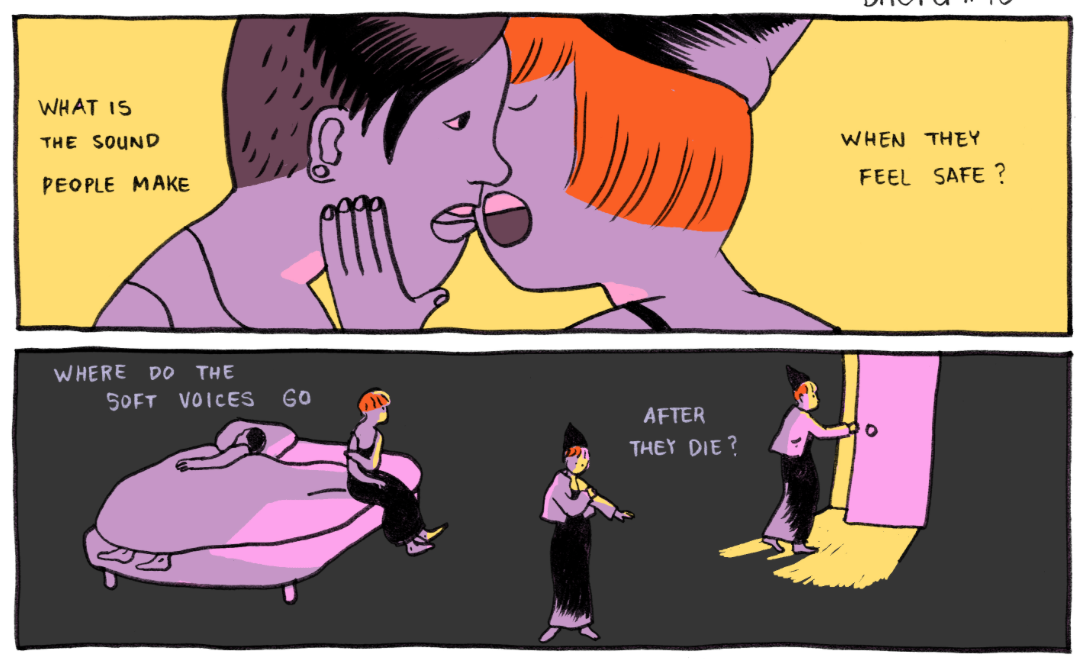
A Year of Grieving: 10 Things I’ve Learned, by Gabby Rivera
“…this publicity seeped itself into my psyche and destroyed the filter I’d developed for 29 years. Her death lived on the edges of my lips and pores of my skin.”
Before You Know It Something’s Over, by Riese Bernard
“My father died when I was 14. I will tell people this forever. It is the truest thing about me. I was 14 when he died. My father. I was 14.”
I Am Jack’s Preoccupation With Mortality, by Laneia Jones
“Oh, death! I can’t believe I was ever so unfamiliar with you! I’m now completely 100% AWARE: I am going to die. Other people are also going to die.”
Where Hope and Grief Can Co-Exist, by Caitlin Zinsser
How do we both honor our child’s memory and prepare to open our hearts again to a new child?
This Is A Dead Mom Essay, by Maddie Taterka
“I stared at her. She stared at me. I said, “We were out running errands last week, and three days later, she was dead!”
The “Book of Life” Gave Me My Anything More, by Asha French
“Book of Life posits that my father is in a place more vivid than memory, which is is just a medium between the man who raised me and the man who waits for me in a place beyond time.”
Advice:
- On Navigating the Unexpected Death of a Queer Friend
- How to be there for your partner during deathiversary season
- What do to when your best friend’s parent dies




